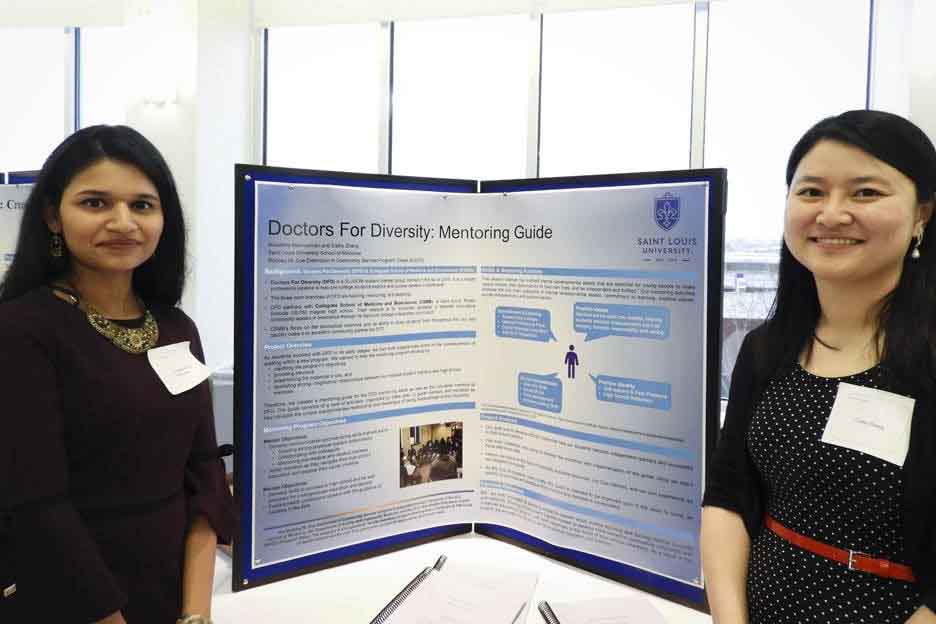Looking Toward a More Diverse Curriculum
Among the many initiatives to foster diversity, equity, and inclusion at the Saint Louis University School of Medicine is enhancing the curriculum to better reflect those ideals.

Lynda Morrison, Ph.D., Assistant Dean of Pre-Clerkship Curriculum and Professor of Molecular Microbiology and Immunology, discusses these changes and the importance of course content being more inclusive. “Our goal overall is to create excellent physicians,” says Dr. Morrison. “And as part of that, they need to be sensitive to their patients’ circumstances and backgrounds, which is the driving force behind some of the curricular changes that we are anticipating.”
Parts of the established curriculum emphasize a broad perspective. For example, the Clinical Interviewing course is devoted to helping M1s learn to interview patients with diverse backgrounds in a culturally sensitive manner. One of the changes in curriculum incorporates active, team-based learning, in which students use clinical vignettes in trying to solve a case-based problem. The vignettes incorporate fictional families that are of diverse backgrounds, including a Black suburban family, an established immigrant family, and others, to shed light on social determinants of health. The School’s Healthcare Ethics course, which has been running for several years, also discusses racism in medicine, as well as individuals with disabilities—another population that is underserved and often marginalized within medicine.
Another aspect of the curriculum that focuses on equity is student electives. “We have quite an array of electives that speak to students getting a better understanding of the social determinants of health, or providing service in the community and addressing the specific needs that the community has identified,” says Dr. Morrison. These electives include Promoting Health and Social Equity (PHASE), Patient Experience of Trauma in Medicine, and Labor of Love, which helps women from underserved communities during their pregnancies.
There are other elective programs that also foster diversity, equity, and inclusion. One program, Doctors for Diversity, consists of medical students going to local high schools to mentor youth who are interested in science and helping them understand more about careers in health sciences. Another program offers medical students the opportunity to teach youth in local schools about proper nutrition and exercise in a fun and accessible way.
With many new initiatives on the horizon, such as a new course, Medicine in Society—a joint effort between the School of Medicine and the School of Public Health that will examine health disparities and racism in medicine— the School of Medicine continues its commitment to the Jesuit concept of cura personalis, or caring for the whole person, and to its mission of the pursuit of truth for the greater glory of God and for the service of humanity. “I think the pursuit of truth includes the pursuit of scientific truth—medical knowledge truth—and also truth about humanity,” says Dr. Morrison. “You can’t put people into one category or another, but really must seek a broader truth to treat all people equitably. Medicine is ideally suited to this concept, because each and every one of us suffers from disease at some point, and each and every one of us deserves effective, compassionate, affordable care.
